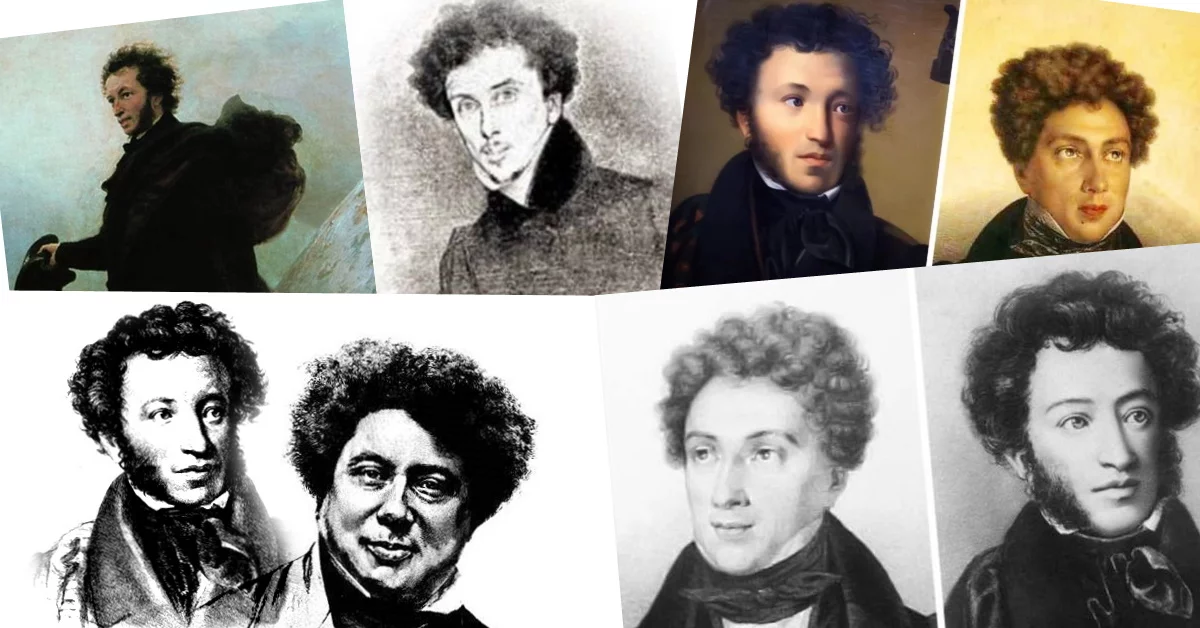According to the exotic theory, the great Russian poet did not die, but secretly left for France, where he became a great prose writer. We checked how plausible the arguments in favor of this version look.
Even things that seem absurd at first glance can be based on convincing arguments. Here are the main points of the theory, which can be read about on resources such as Life, "Moskovskaya Pravda", "Kanobu", SM-News, and in many other sources.
1. Dumas's star rose in the sky shortly after Pushkin's death.
2. Pushkin is only three years older than his French colleague.
3. The writers were relatively similar in adulthood (dark skin, eye color, shape of forehead, eyebrows, nose, dark curly hair) and quite similar in their youth.
4. Both stood out for their brilliant literary talent and fertility, but were absolutely helpless in the exact sciences.
5. Both were called Alexander.
6. Pushkin-Dumas, as if apologizing, named the protagonist of the novel “The Count of Monte Cristo” in honor of his imaginary murderer Dantes.
7. Having never visited Russia by that time, Dumas wrote the novel “The Fencing Teacher,” in which he told in detail the history of the Decembrists and the uprising of 1825. He also translated Pushkin's works into French.
8. According to the testimony of Danzas's second, Pushkin was wounded not in the stomach (as the official version says), but in the place between the thigh and pelvis.
9. Dumas published the magazine “Musketeer”, which translated into Russian could mean nothing more than “Pushkin”, because a musket is a medieval artillery weapon, similar to a cannon.
10. Pushkin managed to accumulate debts, and he always had problems with the authorities. There was a reason to disappear.
11. At the last moment, the farewell ceremony for Pushkin was moved to another place, allowing only relatives and close friends, and the poet’s body was taken out at night in a closed coffin.
And a number of other arguments, from entertaining to more banal.
If you dig around on the Internet, you will find that the overwhelming number of arguments in favor of the conspiracy theory go back to one source - an essay by a certain Nina Milova, posted on the portal "Proza.ru" in October 2009. Milova writes about herself: “I am not a Russian writer, but rather an American economist, although I adore Russian literature and draw inspiration from it for my economic activities.” Another amateur culturologist added fuel to the fire - in 2019, it appeared on the same website Job biologist Nikolai Vekshin “There was Pushkin, there became Dumas.”
Even as non-professionals, Milova and Vekshin had to understand that the lives of both Pushkin and Dumas, two famous cultural figures, were scheduled almost minute by minute. Given the attention that was paid to the life and work of the Russian writer both in Soviet and Russian times, such an assumption seems natural. Let us consider in this light some of the arguments presented by Milova and her like-minded people.
1. By the time of Pushkin’s death, Dumas was known not only in France (yes, he had not yet written novels, but Dumas’s plays were actively published and were put), but also in Russia. Thus, in his essay in 1834, the prominent Russian literary critic Vissarion Belinsky wrote: “...too talented, if not downright brilliant, Alexandre Dumas produced “Tales of a Madman”! Oh, this dissolute young literature!
2. In addition to Pushkin and Dumas, between 1799 and 1802 Balzac, Baratynsky, Dahl, Hugo, Hauff and many other lesser-known writers were born. This is not surprising. This is not the same as, for example, being born on the same day or in the same week.
3. Some external similarity (without taking into account the fact that Dumas in the second half of his life was clearly plumper than his colleague) can easily be explained by the presence of African roots. Grandmother Dumas was dark-skinned slave from the island of Haiti, and Pushkin's great-grandfather came either from Abyssinia (present-day Ethiopia) or from Cameroon. Well, curly hair in people with dark skin tones is, to put it mildly, not uncommon. The hairstyles of both were quite consistent with the fashion of their time. In addition, we must not forget about Pushkin’s height, according to the testimony of the artist Chernetsov, in 1832 amounted to about 167 cm. Dumas was quite high height, some sources even mention 190–195 cm.
4. Indeed, Dumas no progress at school beyond the multiplication table, and Pushkin, according to memories of his sister, “arithmetic seemed inaccessible, and he often burst into bitter tears over the first four rules, especially division.” However, this does not in any way explain the fact that Pushkin and Dumas had literary talents of completely different kinds. The Frenchman did not succeed in poetry at all. Pushkin, as a prose writer, although he left a noticeable mark on Russian literature, is not considered a great master in this capacity in the West. The only novel he wrote was in verse (“Eugene Onegin”), while Alexandre Dumas was glorified by its large prose form.
6. In French, the surnames of Edmond Dantes and Georges Dantes are spelled differently (Dantès and d'Anthès, respectively).
7. Dumas was really interested in the personality of Pushkin, but his notes about a distant country often called “an example of the lack of understanding by visiting foreigners of the peculiarities of Russia.” Moreover, he made mistakes, including in relation to Pushkin - for example, he wrote that he was born in the Pskov province.
8. Even Pushkin himself, while falling, managed say: “I think my hip is shattered.” However, this did not save the poet from gangrene and intestinal damage, as well as from medical errors.
9. A musket is not at all an artillery weapon, “similar to a cannon.” This is the view guns.
11. In addition to the death itself (which was witnessed by at least several people), Pushkin also faced opening, also documented. Moreover, in 1953 it was produced restoration the poet's crypt, and his ashes were still present there at that time. And the absence of magnificent and open funerals is explained by the will of the emperor.
There are other facts that make the theory of Milova and Vekshin frivolous. In particular, Dumas, before becoming famous, did not shy away from people at all. For example, he was active participant The July Revolution of 1830, for which there is a lot of evidence. But Pushkin could not have stood on the Parisian barricades in July 1830, because was preparing for the wedding with Natalia Goncharova. To this day in Neskuchny Garden in Moscow preserved The grotesque bridge along which the poet walked with his future wife that month.
Thus, the theory of a hoax organized by Pushkin itself is an absurd conspiracy theory containing a lot of errors.
Not true
Read on topic:
If you find a spelling or grammatical error, please let us know by highlighting the error text and clicking Ctrl+Enter.







